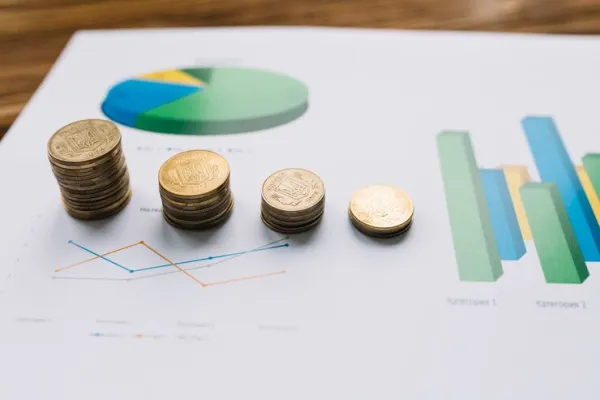
A book, coins, and money arranged on a table.
The Best Economic Books Of All Time
Immersing yourself in a comprehensive array of books penned by leading economists holds its own merits. Though blog entries can be enlightening and enjoyable, the depth found in extended economics texts can prove invaluable for a deeper understanding of fundamental economic principles and theories.
Top Economy Books All Time
1 The Deficit Myth
Renowned intellectual and principal spokesperson of contemporary monetary theory presents a groundbreaking and essential perspective on economics that reshapes the way we envision constructing a fair and thriving society.
Every reader has 2 options: buy a book and carry it with you, but enjoy the smell of paper, or take advantage of the digital age, although not experience the tactile sensations of the book and its aroma. In most cases, readers should have both a story reading app and a library of books. If you have FictionMe - Novels for free on your device, and a dozen good books, you will always have something to do. FictionMe has a lot of books on various topics, so when traveling or on the road, this is the best option. Another feature of the novel app is that it provides voice overs for books, so you can just listen when you're tired.
2 The Affluent Society
In "The Affluent Society," Harvard economist John Kenneth Galbraith delivers his insights with his trademark wit and clear expression, tackling the essence of what it means to have economic security. He cautions against accepting economic inequality as a norm in both individual mindsets and societal norms. This term he introduced, "conventional wisdom," has since become a common part of our discourse.
3 Das Kapital
"Capital," a seminal piece marked by both notoriety and influence, stands as a sharp critique against private property and the social dynamics it creates. Penned largely during Marx's exile in England, he wove a comprehensive understanding of British society into his work, providing innovative observations. In it, Marx contends that the capitalist system would lead to greater disparities in wealth and well-being, ultimately foreseeing its demise and the rise of a new system predicated on the collective ownership of production resources. The treatise quickly found an audience among the leadership of social democratic parties, particularly in Russia and Germany, and its influence spread globally. "Capital" came to be recognized, as Marx’s compatriot Friedrich Engels put it, as 'the Bible of the Working Class'.
4 Human Action
"Ludwig von Mises' seminal work, Human Action: A Treatise on Economics, champions the principles of free markets by exploring praxeology, or the discipline that examines human decision-making and actions with intent.
The Austrian economist, penning his thoughts in 1949, attributes much of the advancements in technology and the surge in wealth over the preceding two centuries to the application of free-market economics. You can also get acquainted with novel AI alternatives, which can offer a more recent version of the book. This is a good way to get a new perspective.
5 The Wealth of Nations
"The Wealth of Nations," a seminal work by Adam Smith, was first published on March 9, 1776, amidst the era of the Scottish Enlightenment and significant advances in Scottish agriculture. Its profound impact resonated among various writers, economists, as well as governmental and institutional bodies. Among those influenced was Alexander Hamilton, whose "Report on Manufactures" drew from Smith's work. Notably, while Hamilton's report countered several of Smith's theories, it was simultaneously rooted in the thoughts of Jean-Baptiste Colbert—thoughts that Smith had previously challenged through his own work.
6 Human Action
In "Human Action: A Treatise on Economics," Ludwig von Mises, an esteemed Austrian economist, advocates for laissez-faire markets backed by his analysis of praxeology—the science of human behavior in decision-making.
Authored in 1949, Mises attributes the surge of technological advances and wealth expansion over the preceding centuries to the principles of a free-market economy.
7 Capital in the Twenty First Century

Recognized as a triumph in literary circles, this work has garnered accolades among the likes of a USA Today Bestseller and a revered Sunday Times Bestseller, not to mention its citation as a Guardian Best Book of the 21st Century. Its insights have also earned the distinction of being the recipient of the prestigious Financial Times and McKinsey Business Book of the Year Award.
8 The Worldly Philosophers
"The Worldly Philosophers" serves not only as a window into historical insights but also as a lens sharpening our view of contemporary life. In the latest seventh edition, Robert L. Heilbroner introduces a unifying theme that draws together the thoughts of disparate figures like Adam Smith and Karl Marx. This central idea revolves around deciphering the mechanisms of a capitalist society—a topic of immense relevance amidst today’s bewildering economic news.
Conclusion
While it's true that a thorough economist would dedicate time to explore the contributions of leading economic minds from history to modern times, A-level economics students might not have the luxury of such extensive study time.
For those with time constraints, it's advisable to prioritize books that are most intriguing to you and that offer new insights or perspectives on economics you haven't encountered or reflected on before.


